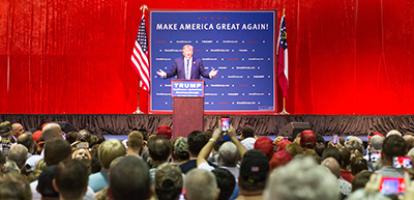From: Daniel Schwanen
To: Concerned Canadians
Date: May 7, 2018
Re: Canada should steel itself for concessions that make sense, emphasize common ground in NAFTA (Part 1)
Canada and Mexico got another reprieve last week, until June 1, against duties imposed globally by the US on steel and aluminum imports. US Trade Representative Robert Lighthizer indicated that to be permanently exempt from these duties, Canada and Mexico might have to agree on quotas on shipments of these commodities to the United States.
Although the two issues are separate, an agreement on a new NAFTA that all three countries can live with may well result in Canada and Mexico receiving a permanent exemption from these duties. And as we know, one objective that all three countries share is to keep trade as free of duties as possible, even though the US side insists on tightening the rules of origin – raising the required US and North American content of autos that would be entitled to cross North American borders duty-free.
This comes as we enter a crucial week in the NAFTA renegotiations, with talks scheduled in Washington between the three countries’ main NAFTA point persons.
Each country has strong reasons to want an agreement soon. The economic uncertainty surrounding future rules under which trade will be conducted makes some firms hesitate to invest in Canada, as Bank of Canada Governor Stephen Poloz recently noted.
The longer talks drag on, the more investors will be tempted to grow their business in the United States to avoid potential cross-border complications. But the approaching July 1 Mexican election, and very tight timelines if NAFTA is to be approved by the current Congress according to procedures under the Trade Promotion Authority granted the President by Congress, mean that if there is no deal this month, negotiations will be punted to the end of the year, prolonging the uncertainty.
The new June 1 deadline for the end of the exemption on steel and aluminum tariffs for Canada and Mexico only makes the need for an agreement in May more urgent.
The United States knows that fostering uncertainty puts pressure on its partners to achieve short-run political compromises necessary for a new agreement. But the United States must realize by now that Canada and Mexico cannot compromise to the point where some key advantages of open trade for the competitiveness of North American industry as a whole, are eviscerated.
In addition to forcing more US content into traded goods, demands by the US that would have a deleterious impact on competitiveness include less access by non-US firms to government-funded infrastructure projects in the United states, as a result of expansive use of “Buy American” provisions; gutting of the quick and effective protection afforded by key dispute settlement mechanisms against arbitrary decisions by US governments or agencies; and permanent uncertainty through a “sunset clause” in a new agreement.
Access to the US market for goods and services is a key asset for Canada’s economy. It must be preserved and even enhanced to the extent possible, and uncertainty around future changes in trade rules minimized.
Thus, at heart, Canada’s agenda is a defensive one. This means that intelligent compromises on the part of Canada and Mexico may be necessary to provide the Trump administration with “wins” on at least some of the above issues, while minimizing the economic downside for the continent as a whole and emphasizing the areas in which the three countries could work together to achieve common objectives, such as ensuring easier trade for small businesses. No doubt the two countries can find very significant support within Congress, and even within the Administration, for such a constructive approach. In Part 2, what to do.
Daniel Schwanen is vice president, research at the C.D. Howe Institute.
To send a comment or leave feedback, email us at blog@cdhowe.org.
The views expressed here are those of the author. The C.D. Howe Institute does not take corporate positions on policy matters.





